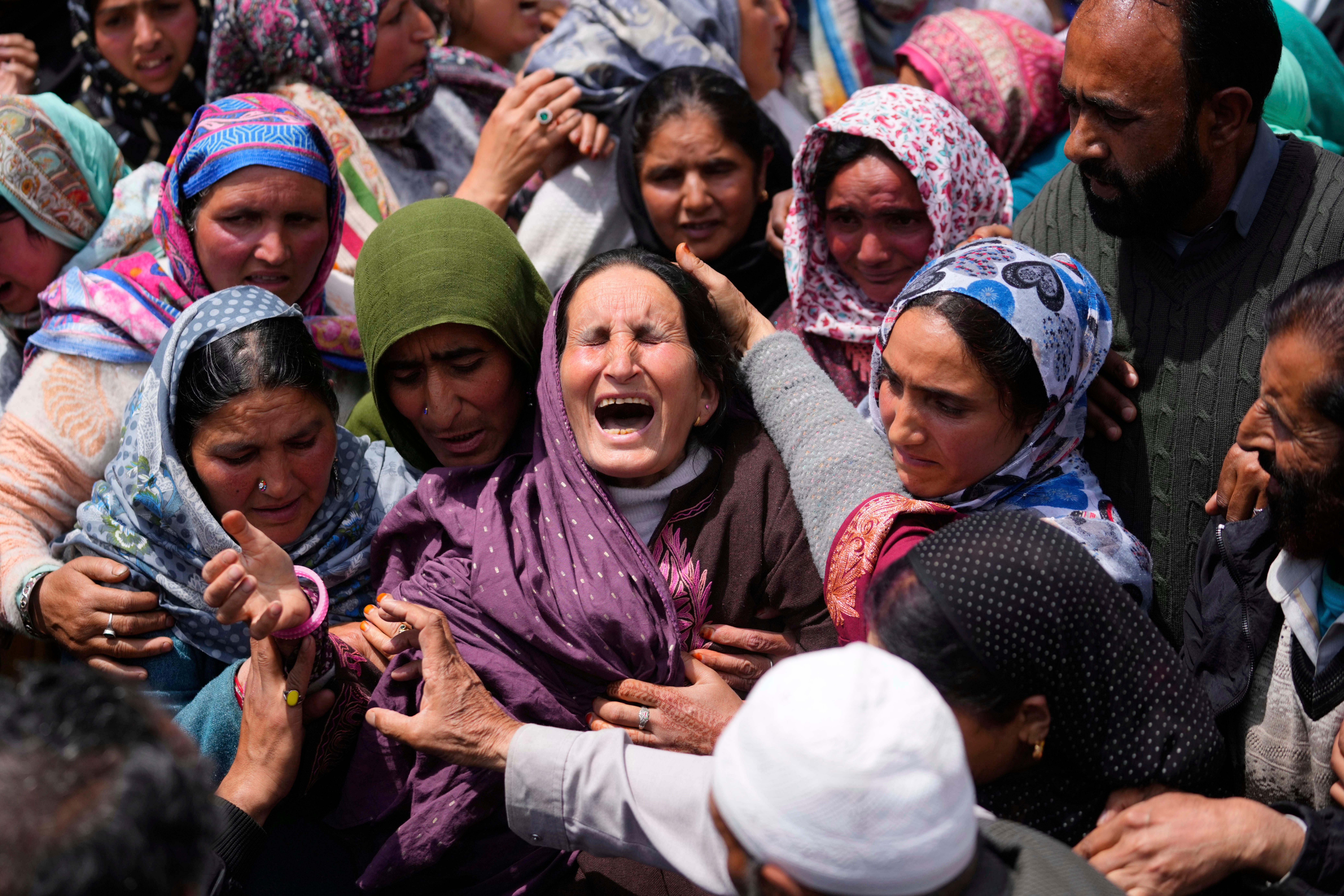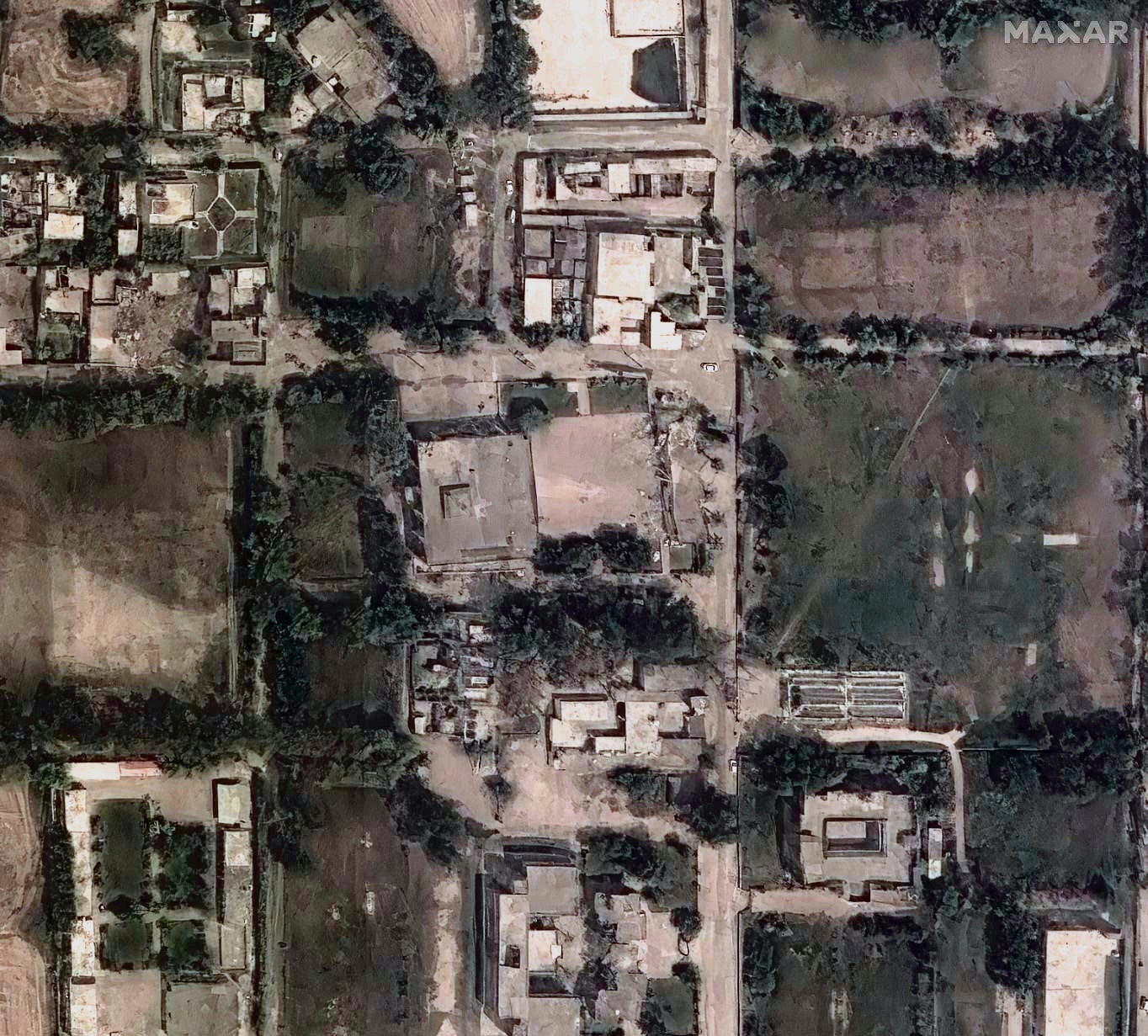India now claims all Kashmir attackers were Pakistani nationals
Investigators previously claimed Pahalgam attack was carried out by two Pakistani gunmen and a local Kashmiri associate
India’s counterterrorism agency has claimed that all three gunmen who carried out the 22 April massacre of civilians in the restive Kashmir region were from Pakistan.
New Delhi cited the killings of predominantly Hindu tourists as justification for launching airstrikes in Pakistan a few days later, sparking a four-day military confrontation that pushed the nuclear-armed South Asian neighbours to the brink of an all-out war.
The Kashmir police had alleged the attack in the tourist town of Pahalgam was carried out by two Pakistani gunmen and a local associate.
Now, the National Investigation Agency has alleged that all of them were Pakistani operatives of the Lashkar-e-Taiba, which the UN has designated as a terrorist group.
Indian security forces in Kashmir launched a massive manhunt for the attackers after releasing their sketches, carrying out raids across the restive Himalayan valley and arresting over 1,500 people for questioning. Indian authorities also bulldozed several homes linked to alleged local militants in the wake of the attack.
The federal agency’s latest claim about the nationality of the gunmen came after the arrest of two local Kashmiri men for allegedly sheltering them.
“During questioning, they disclosed the identities of the three armed terrorists involved in the attack and confirmed that they were Pakistani nationals affiliated to the proscribed terrorist outfit Lashkar-e-Taiba,” a spokesperson for the agency said.

The arrested men – Parvaiz Ahmad Jothar from Batkote and Bashir Ahmad Jothar from Hill Park in Pahalgam – allegedly told the agency the attackers had visited their homes and taken food from them. The two men "knowingly harboured the three armed terrorists at a seasonal hut” before the attack in April, the agency alleged. It did not give details of when the arrests had taken place.
"The two men had provided food, shelter and logistical support to the terrorists, who, on the fateful afternoon, selectively killed the tourists on the basis of their religious identity, making it one of the most gruesome terrorist attacks ever," it said.
After taking over the investigation into the attack from the Kashmir police, the agency questioned over 200 people in Kashmir, including business owners, pony handlers and photographers.
A shadowy group known as The Resistance Front had taken responsibility for the attack before withdrawing its statement. Indian security agencies claim the group is a front for the Lashkar-e-Taiba.

The Pahalgam attack prompted New Delhi to downgrade its already strained ties with Pakistan and suspend the 1960 Indus Water Treaty, a water-sharing agreement that had survived multiple wars between the rival nations. Islamabad retaliated by withdrawing from the 1972 Simla agreement, which was aimed at normalising relations.

The Indian military then launched airstrikes on what it claimed were terrorist camps in Pakistan. It claimed to have killed nearly 100 militants in the strikes and 35-40 Pakistani soldiers in subsequent action along the de facto border in Kashmir. Pakistan reported civilian casualties and damage to mosques and homes, asserting that India had struck populated areas.
The intense fighting came to a halt after four days with a ceasefire announced by the two governments following talks between their national security advisers. US president Donald Trump claimed credit for brokering the truce but Indian officials quietly rowed back against the idea that his intervention was pivotal.
Join our commenting forum
Join thought-provoking conversations, follow other Independent readers and see their replies
Comments
Bookmark popover
Removed from bookmarks